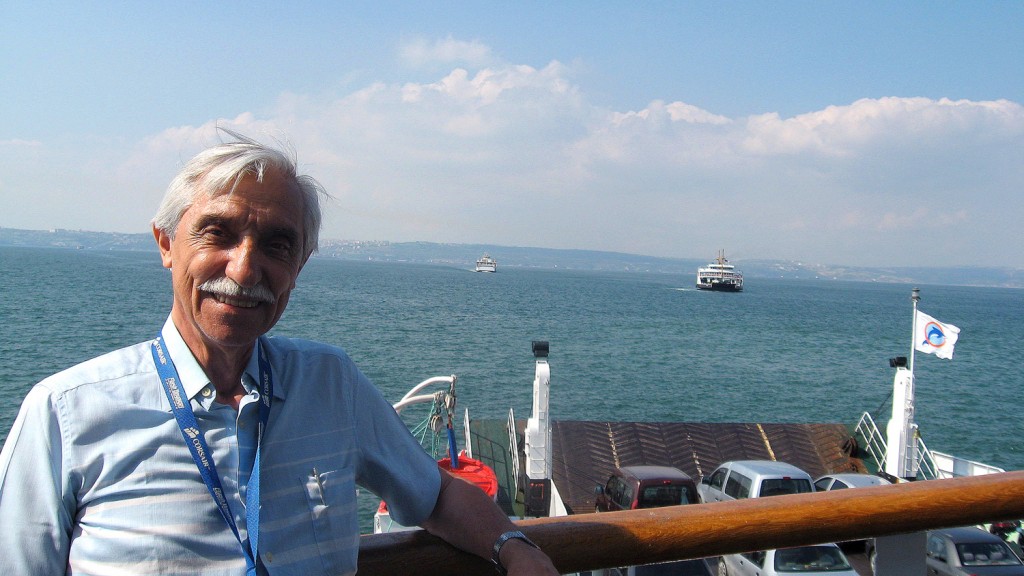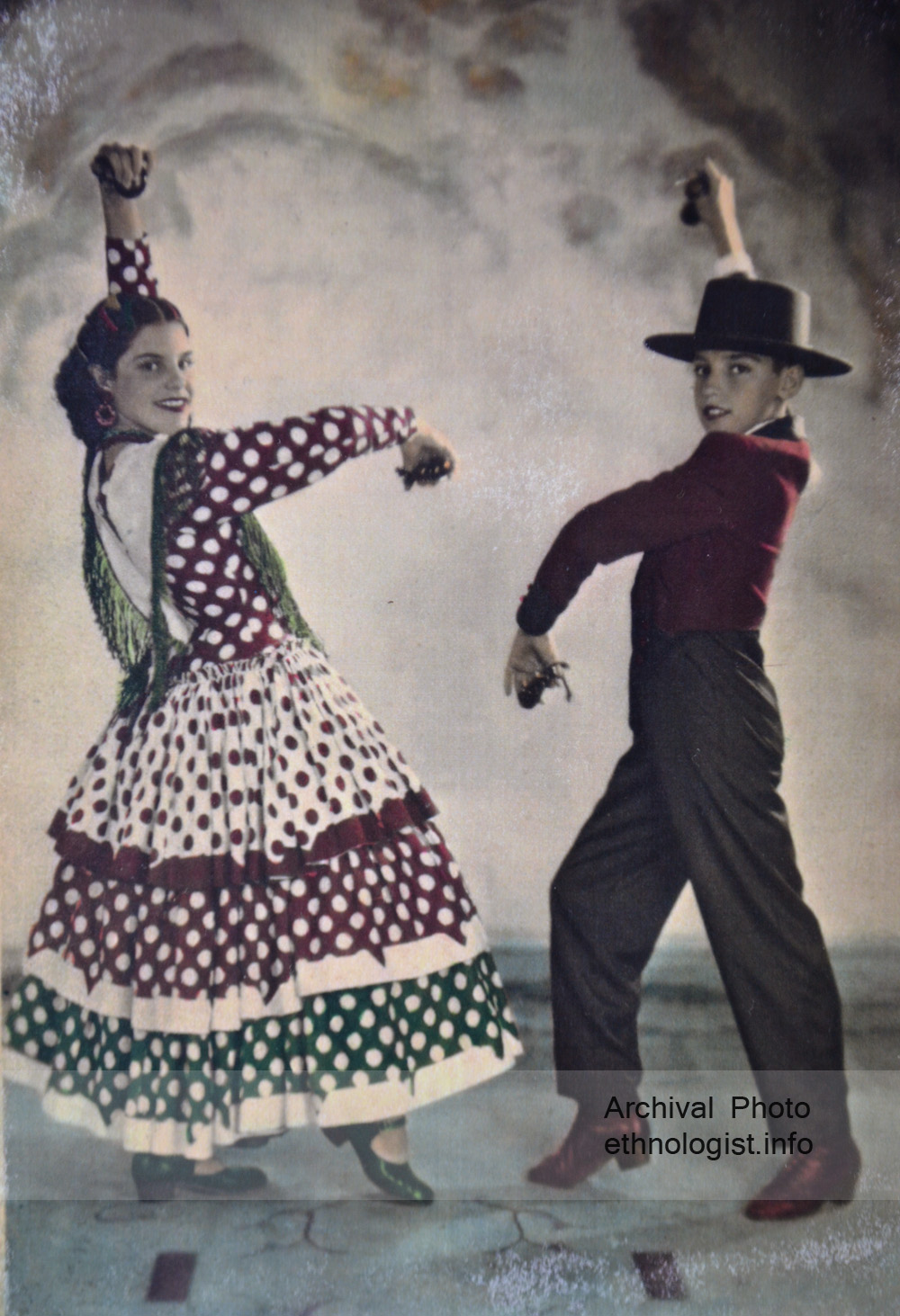
Ing. Fermín Pedro Barnó Piazza (translator)
Fermín Pedro Barnó Piazza was born on 1st December, 1934, in Santa Maria de la Mercedes, Uruguay. He came from a middle-class family and his father owned a tailor´s workshop, which employed the whole family. Surprisingly, the first shirt Fermín was allowed to iron was when he was 12 years old because the family approached business with a great degree of responsibility.
During Fermín´s university studies he was keen on competitive swimming and rowing for the local club Remeros de Mercedes. He emigrated to the Czechoslovakia in the early 1960s. He successfully graduated from the University of Economics in Prague in 1971.
His work for Czechoslovak Radio1.Today Czech Radio (Český rozhlas; ČRo). The Czech Radio played an important role during the Prague Spring and also during the Soviet occupation, which began on 21st August in 1968. Soviet soldiers also came into the Radio station. The Czechoslovak Radio in this period broadcasted from different locations. shone despite the period of rigid normalization2.1969-1987 under the communist regime, where he worked in Latin American production and he founded the series ´Travelling around the Czechoslovakia´. He drew from international sources which was uncomfortable for some colleagues and leaders. In conclusion, he was fired from Czechoslovak Radio.
Another stage of his life was contributing to ČTK and also working as a translator. Simultaneously he spent a long time translating Spanish films into the Czech language and making the accompanying captions for the Czech production company Krátký film (Short movie). In 1996 he suffered a serious car accident and since then he has stopped translating.
Fermín´s experience of contributing to movie production and his penchant for dancing passed on to his two daughters. The older one is working as a film producer and the younger is a professional dancer od Latin dances. In addition to two daughters he has a son, who works for Czech Post.
For what reason did you decide to emigrate to former Czechoslovakia? Did you have some awareness of this country?
I was studying law in Uruguay and after that social studies. I applied for foreign scholarships in the beginning of 1962. So, why did I choose Czechoslovakia? It was very simple – with the process of elimination. I could go to the United States only for half a year. There were unexceptionable university faculties of arts in France, but rather I wanted to study some exact Sciences. And Germany? I dislike Germany. In Poland, I did not want to leave, and not to go to Russia at all! And so it went on and on. Romania? No. Italy? No.
During my studies in Uruguay I used to go to Czechoslovakian films, and when I saw the movie Holubice from the Czech director Vláčil, the sight on this movie awoke in me such a wonderful feeling that I said to myself: ´Yes, you must be there!´ I very much enjoyed Czech music and even Uruguayan people know the Czech composer Dvorak and also Czech porcelain.
I also remember that one day Czech musicians arrived in Montevideo and for us Uruguayan people, this was something completely different and new. Me, and my friend drove with a jeep to their night show. They were amazing, and their dancing and singing was so beautiful that we decided to invite a few musicians to ride with us after their midnight show. We brought them to the beach and we spent one of the most beautiful evenings in my life, because the sea reflected the phosphorescent stars, the moon shone brightly and we all swam naked. There was a girl from Moravia and at that time I had no idea that I would ever come in Czechoslovakia. The girl that night gave me her address but after two years when I came to her, she was married.

For you what was the role of a foreigner in Czechoslovakia and how were you affected by the Czech environment?
It acted positively on me. I started with my studies at the University of Economics in Prague after my arrival. But before starting studying I had to pass an intensive program of Czech language in Dobrusca (Dobruška). I have wonderful memories from Dobrusca. There were many foreigners from all over the world and I remembered that one boy from Africa wrote everything in his little notebook. He always came up to somebody and asked him: “What is it?”, and then, he wrote down this particular word. He did so much and one time he overdid it, he came up to one man from Dobrusca and asked him: ´What is this?´ and he pointed to a shovel. The man replied: ´Holy shit! This is a shovel!´ And the boy wrote in his notebook: ho-ly-shit-this-is-a sho-vel. Sometime later we had a lesson and the teacher chose students and tested them with simple objects – accidently he was carrying a picture of a shovel and asked: ´What is this?´ And the eager boy screamed: ´Holy shit, this is a shovel!´ The whole class roared with laughter. So, I have such memories. (he laughs)
Do you think that the Czech are xenophobic?
No, I don´t think so. I think that they are just a bit closed. It is based on the opinion that the best community is their own and the word ´foreigner´ (Czech: ´cizinec´) is after all derived from ´foreign´ (Czech: ´cizí´), isn´t it? A man from a foreign country is not worthy of trust. Secondly, another reason is that there are the effects of natural and social conditions. The Czech Republic is a hollow basin surrounded by mountains and behind the mountains there is danger. So, I would explain it like that.
Also, I would like to ask you. Where there any bad reactions directed at you, just for the reason that you were a foreigner or immigrant?
Frankly, something downright negative rarely happened to me. Yeah, they said to me, for example, (I do not remember where or when) you moron Arab. I just laughed. (laughing)
How about when you worked in Czechoslovakia and the Czechs at that time, how do you feel about that time now?
I will repeat it again. I don´t think that anything has changed in principle. I have a feeling that Czechs were like that previously, because they were afraid or not allowed to do many things. (Note: He thinks about the communist party). And nowadays they have a mistrust of foreigners.
Have you ever married in Czechoslovakia?
Yes, actually two times. (laughing) The first time I was 33 years old in 1967. I have two daughters and one son, that I know of, I do not know about the others. (laughing)
I assume that the two marriages were to Czechs, did you find some advantages or disadvantages of a mixed marriage?
Marriage is based on tolerance, it is not based on where the person is from, but how the person is!
Could you compare and evaluate life in your native country to your present life in the Czech Republic?
It depends what I would compare. For example the politics is absolutely different. Top politicians only stole money in the Czech Republic, but in my country, president Mujica killed people. Regarding healthcare, I have total trust in the Czech health system. On the other hand, they have very similar medicine and actually many things come to me the same. It is hard to say and compare… I was born in Uruguay, grew up and spent a beautiful childhood there – I will always feel something other than what I have for the Czech Republic because my roots are there.
And what are the advantages and disadvantages of living in the Czech Republic?
As I said, I couldn´t compare it.
If he had to evaluate character traits and differences in social behaviour of Czech and Uruguayans people, in what would be on?
Czechs are more closed, the ´inside´, they rarely express what they feel, and they have few laughs. In contrast, Uruguayans are the opposite of them, for example I am still laughing. (laughing)
From a socio-economic point of view, does life seem easier to you in the Czech Republic or in your native country?
Currently I am in retirement and my opinion on this is that we (pensioners) have worked all of our lives and we have nothing! (laughing) But this is really exactly the same – everywhere.
What do you think that characterizes the Czech Republic, the Czech nation and Czech culture?
I would like to say one thing – the word ´nation´ – I dislike using it. What is a ´nation´?! You really think that God said: ´I create a Czech nation.´ It is stupidity. And Uruguayans? They are from everywhere. From Argentina, Chile, Brazil. And maybe as you know, the oldest human ancestor was found in Ethiopia, so we descended from one man from Africa… Contrary I could talk about Czech society and how it is a very culturally educated society. And Czech culture? Czech culture is that culture that is accepted as a true or fact by a large majority – and I say now: by the ´nation´.
What is the most similar country to the Czech Republic?
As a country? I don´t know. I haven’t been everywhere. (laughing) But I am going to journey across Scandinavia with my sister…
If you had to choose only one nationality, which would it be?
I inherited Spanish nationality after my father. I have got it and I would never change it, just because with a Spanish passport you cannot pay visa. (laughing)
Do you feel that you are a Czech?
I am what I am and where I am. But I wasn´t born here (Prague) and I cannot be a Czech. I have spent half my life in the Czech Republic, so it has certainly affected me in some way, but that is enough.
And according to what and how do you think a foreigner can become a Czech?
From my perspective – never. A fundamental factor is mother tongue, the language that you learn from childhood, the language in which you think and it is hard to learn…
What country has the best behaviour to the foreigners?
The country that does not use the word foreigners. (laughing)
If you look back to the past, do you regret that you started a family and you lived along life in the Czech Republic?
Absolutely not. I am happy to be here and everywhere. You can find Foolish and bad people everywhere, but I don´t listen to them! (laughing)
| ↑1 | Today Czech Radio (Český rozhlas; ČRo). The Czech Radio played an important role during the Prague Spring and also during the Soviet occupation, which began on 21st August in 1968. Soviet soldiers also came into the Radio station. The Czechoslovak Radio in this period broadcasted from different locations. |
|---|---|
| ↑2 | 1969-1987 |